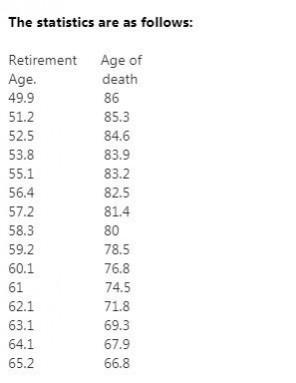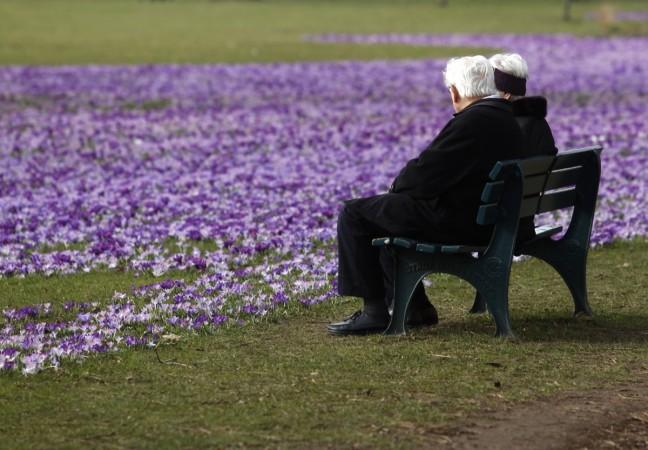A study by American scholar Ephrem Cheng 25 years ago said the relationship between life expectancy and retirement age are linked. The report redesigned several pension plans for U.S. companies, including Boeing, AT&T and Ford Motor Co., among others for life insurance companies.
As many full-time managers who retire at the age of 65 usually die within 18 months, it said crippling insurance plans for aged executives in many companies. The study was based on a finding that a number of pension reserves have not been claimed as the claimers died soon after retirement at 65, since they face enormous pressure every day, constantly living under pressure and emotional tension, dragging themselves to the edge of collapse.

It said the latent diseases come forth once the person is relieved of the job pressure at the age of 65, when he retires, and within 18 months he is gone. The findings have shocked many American executives, in the first decade of 21st century and pushed them to retire at 50 and re-plan their lives with part-time or other interesting jobs.
According to this survey, the healthy lifestyle of the 50-year-olds after they started their second spring has greatly improved and many of them did not die until they were 85 years old.
Dr. Cheng argued that the sooner you leave the circle of power and money and get rid of the shackles of fame and luxury, the happier you will be and the longer will be your life span and suggested to lead a life of a philanthropist, or to lead a meaningful life that strengthens the immune system.
Urban myth?
However, the study was immediately questioned by other experts. Dr Sing Lin, a faculty member of the King Faud University of Petroleum and Minerals (Saudi Arabia), in an article published in Optimum Strategies for Creativity and Longevity, questioned the rationale and said the opposite of it is more evident in many societies, where people retire at 65 and still go on to live up to 80, especially in Japan and Singapore.
Giving tables from the study by Dr. Ephrem (Siao Chung) Cheng, he stated that the study, based on the number of pension checks sent to retirees of Boeing Aerospace, is not equally applicable. It was an opinion piece and not an academic paper, he pointed out. With limited sample, data collected with a few people involved, it cannot apply to all societies and all times, he said stating that Cheng's data was from the Boeing survey that was 25 years old as of 2007.

Questioning the graph, he said, "What does "number alive" actually mean? If you retired at 50 and it was 30 years ago, then you could expect that you don't have long to go. If you have only just retired, you would certainly expect to "be alive". It says "a random sample" - but is it the same number for each age cohort? And how long ago did each person retire? Is it also evenly distributed?"
Finally, Sing Lin termed the correlation as an "urban myth" and stated that "there is no correlation between age at retirement and life expectancy of Boeing retirees."
Another Study
Another study in 2019 found that people in their middle-age need to keep up their physical activity levels high to retain their fitness and this is possible among those who opt for active jobs even after retirement age of about 65.

The study from the University of East Anglia reveals that over-55s in particular should be doing more to keep fit physically and mentally. In a survey of more than 1,000 over-55s in an online 'Physical Activity and Retirement Transitions' survey, researcher Dr Charlotte Salter from UEA's Norwich Medical School found that there was a tendency to lesser physical activity around the age of 55.
"While retirement can free up time, deteriorating health and wellbeing often become a new barrier... But we found that activity that is combined with socialising, or other purposeful actions such as dog walking, gardening, housework, childcare or volunteering, were all good ways for over-55s to remain active," he noted.
However, the debate goes on.















